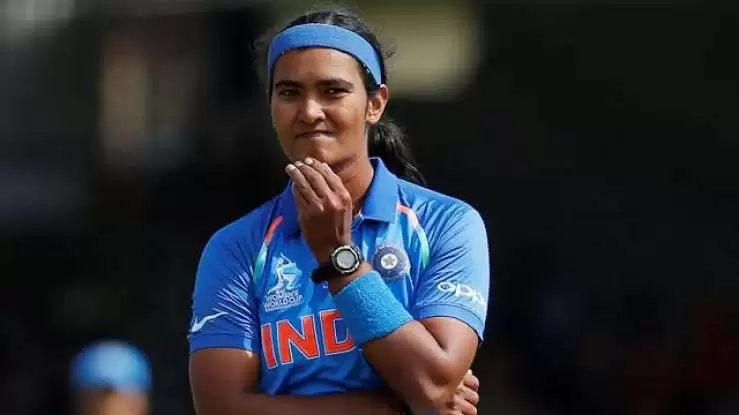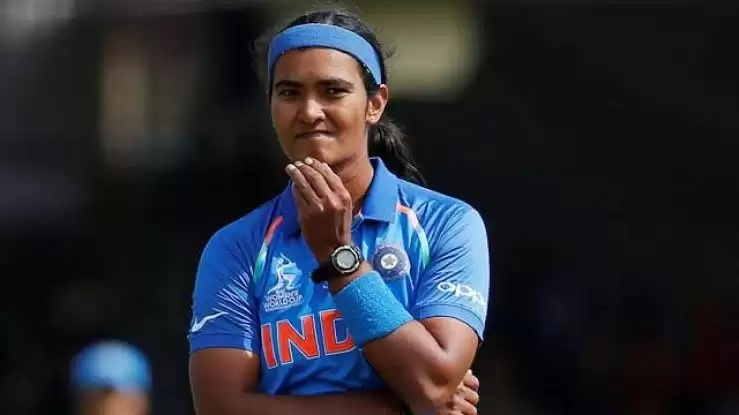
India Women’s team take on Australia Women in the ICC Women’s T20 World Cup opener at Sydney. The focus for India in their bowling attack has remained on the spin contingent, but leading the way for the pace bowlers has been Shikha Pandey. In an exclusive interview with CricXtasy, Shikha Pandey opens up about the […]


India Women’s team take on Australia Women in the ICC Women’s T20 World Cup opener at Sydney. The focus for India in their bowling attack has remained on the spin contingent, but leading the way for the pace bowlers has been Shikha Pandey. In an exclusive interview with CricXtasy, Shikha Pandey opens up about the mental aspect of the game and coming back after a career setback.
A blip in form in 2018, you had a superb 2019 particularly in ODIs. What really changed? Was being omitted from the T20 WC team an eye opener?
I guess, 2018 when I got dropped, I wasn’t in the right frame of mind. I wasn’t enjoying my game as much as I should have done. When I got dropped, I had time. So, I got to practice with my state side, Goa. I realised the very reason I started playing the game as a five-year old kid. I told myself that whatever happens, I am going to enjoy the sport. If I could continue that, it will help. That’s probably the main factor behind the recent results. There are a few others things like working on the mental aspect of the game. I started concentrating a lot of things that matter to me – the controllables – and I started neglecting things out of my hand.
Once you came back into the national team, were you nervous about showing your worth?
Not really, the year I got dropped, the domestic season I actually fell ill while playing for Goa and missed the first four games. I played the last four but we did not qualify. So, I was playing really well so I was sure I was in a better frame of mind. When we played the Challengers Trophy in January 2019, I led India Red to a win. I realised what helped was the manpower hours I put in during the 2-3 months I was out. I don’t think I was nervous. After a long time when you are playing a big game, you get butterflies. I might have been a touch anxious maybe, but definitely not nervous.
There was a stunning show alongside Goswami at Wankhede against England last year. What have you picked up from the senior bowler? Do you see yourself in a similar role to what Jhulan did in the latter half of her career?
I don’t think I can be compared to her. She is an unparallel. She is being a great servant of women’s cricket as such. The kind of standards she sets, her work ethic and dedication is unbelievable. I try to emulate whatever I can. Every net session or game we have played together, there’s something or the other she advises me about. I can only sit and listen in awe. She is the perfect senior. Right from the first Challengers Trophy I played in 2010, she was the captain of the team I played in. She has been an idol. It was a dream to play alongside her, share a dressing room with her. Like I said, she has always been there to talk to me. I have learnt a lot from her about retaining the passion for the sport.
You ended 2019 with a good showing in WI in the T20Is. What was the kind of preparation for that tour?
In the West Indies series, after I came back I told myself to focus on the process. I had forgotten this in the time I got dropped. I never have long term goals. I prefer having short term goals – one game at a time. I was very anxious about the results previously. When WV Raman Sir came into the setup before the New Zealand tour, he took initiative in clearing this up, not just for me but for all of us. He emphasized on the mental side of the sport. He always stressed that it’s the process that matters. He was the one who brought out a very small point in my bowling during the Challengers. I worked on it. The results did not come immediately in New Zealand. But when I came back and bowled against England in the ODIs and T20Is, it started showing. I am a stout believer in the fact that you won’t get results overnight for your efforts. If you persist and you are ready to give it all, it is going to get better. Since then, I started focusing on one game at a time rather than a series or a tournament.
With the World Cup approaching, what’s the kind of preparation you have been doing?
No, right now I am focused on the Australian conditions and what to expect. I was not thinking too much about the World Cup before the tri-series. The series was a great preparation for us about what to expect from here. I have also worked a lot on my fitness this time. So hopefully it all comes together.
You were talking about fitness. So in between a series, what kind of training preparations do you do?
It depends. When we do not have many matches. From the time we played England to the series against South Africa, there was a 5-6 months lay-off. So that was a time we worked a lot on the fitness. We knew the work we put in during the off-season is the one that takes us through the main season. During matches you do not get too much time for strength and conditioning sessions because the matches are intense and you need recovery. In between matches, it is more maintenance in terms of fitness.
You were talking about being in a good space mentally once you returned to the side. Does being in a good mental space make a huge difference?
It does. When I talk about good mental space, it is about knowing something’s not working for me or not to push hard when things aren’t going your way. Jump into a plan B right there and not being stubborn about sticking to what you thought would work. Those kind of small things matter. There are days the ball comes out beautifully from the hand. Being in a good mental space is basically understanding that you are bowling well or not bowling well and adapting accordingly. T20 for instance is a short game. It’s just 20 overs. One or two overs can make a big difference. I need to adapt quickly. One over I bowl could make a difference to the result. Being in a good mental space is not just worrying about what might happen or not worrying about the previous ball. Being in the present is important.
When it comes to ODIs and T20Is. In four overs do you have enough time to work over a batsman. So does being in a mental space help in forming new plans on the go?
I am a huge fan of Test matches. I love when a bowler sets up a batsman. It is more about time. In T20s, it is probably more about intensity. It’s a format the batsmen dominates. My focus is on bowling good balls, dot balls. If a good ball gets hit, let it be. You are bound to get hit. This is something I have worked on. I used to be an overthinker. Now, I have actually started forgetting about the previous game and focusing on the game at hand. T20s happen quickly and the decisions you make on the go make a difference. Being precise with the plans and maintaining a clear mindset is important.